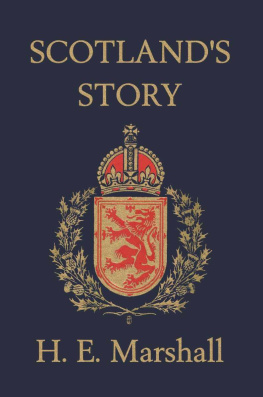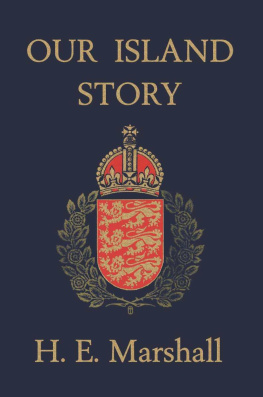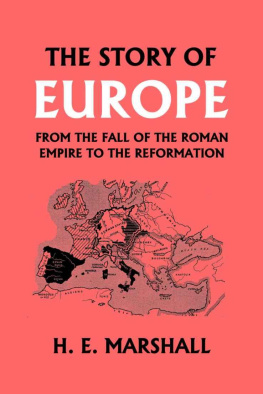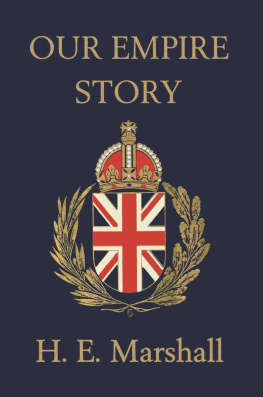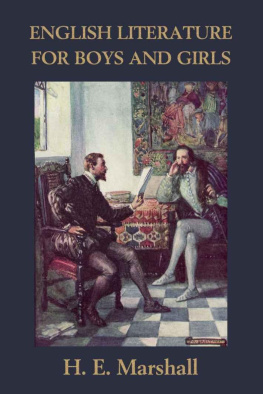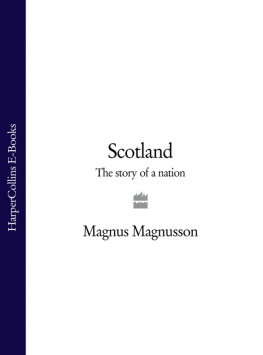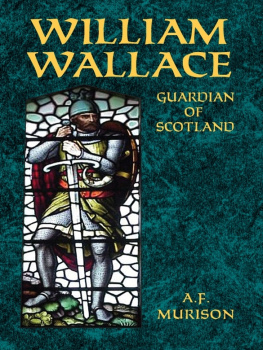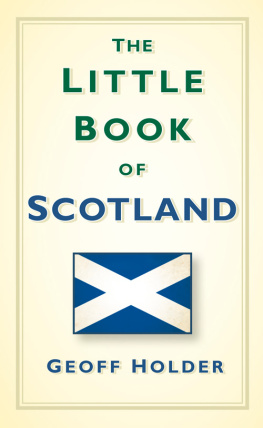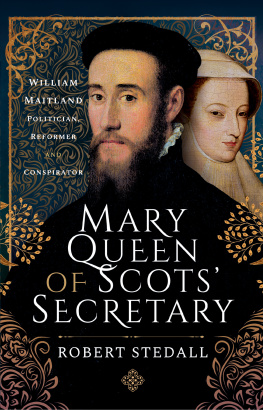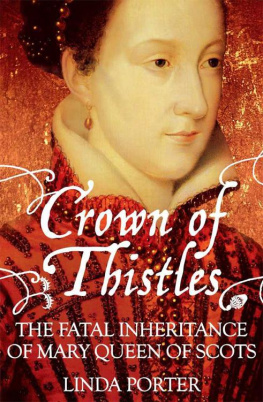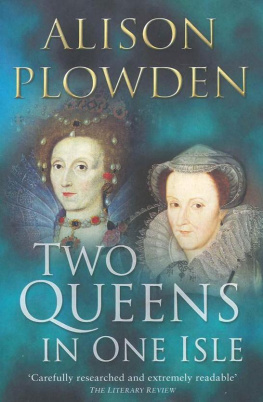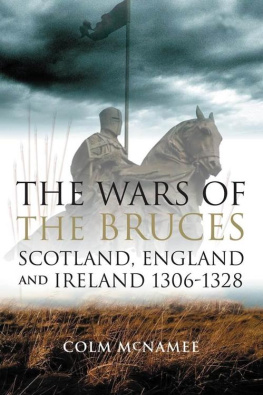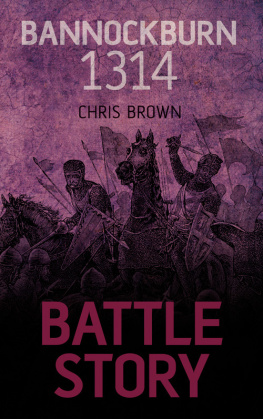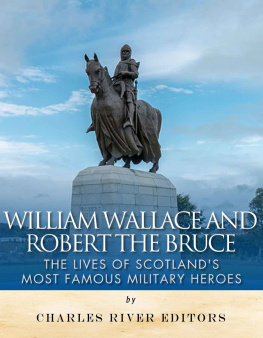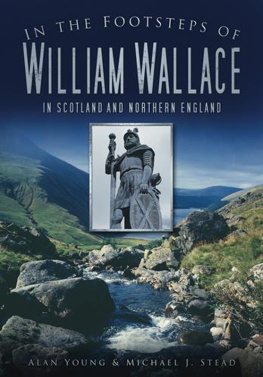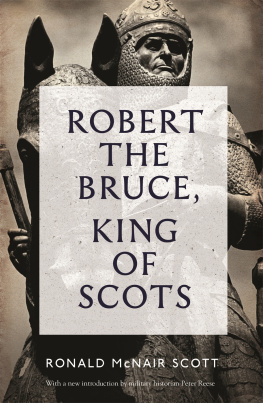Scotland's Story
by
Henrietta Elizabeth Marshall
Yesterday's Classics
Chapel Hill, North Carolina
Cover and Arrangement 2010 Yesterday's Classics, LLC
All rights reserved. No part of this book may be reproduced or retransmitted in any form or by any means without the written permission of the publisher.
This edition, first published in 2010 by Yesterday's Classics, an imprint of Yesterday's Classics, LLC, is an unabridged republication of the work originally published by T. C. & E. C. Jack, Ltd. in 1906. This title is available in a print edition (ISBN 978-1-59915-056-7).
Yesterday's Classics, LLC
PO Box 3418
Chapel Hill, NC 27515
Yesterday's Classics
Yesterday's Classics republishes classic books for children from the golden age of children's literature, the era from 1880 to 1920. Many of our titles are offered in high-quality paperback editions, with text cast in modern easy-to-read type for today's readers. The illustrations from the original volumes are included except in those few cases where the quality of the original images is too low to make their reproduction feasible. Unless specified otherwise, color illustrations in the original volumes are rendered in black and white in our print editions.
Why This Book Was Written
"It is very nice," said Caledonia, as she closed her book with a sigh; "but why did you not tell us stories of Scotland?"
"Because there was no need. That has been done already by a great and clever man."
Oh, but children sometimes like the stories which are written by the not great and clever people best," said Caledonia wisely. "Littler children do, anyhow. They are more simpler, you know."
"Oh indeed!" said I.
"I wish you would write Scotland's Story for littler children like me," went on Caledonia, "and please put more battles in it than in Our Island Story . But you must not say that the Scots were defeated. I don't like it at all when you say 'The Scots and the Picts were driven back.' "
"But you know we were defeated sometimes, Caledonia."
Caledonia looked grave. That was very serious. Presently her face brightened. "Well, if we were, you needn't write about those times," she said.
So, because Caledonia asked me, I have written Scotland's Story . I am afraid it will not please her altogether, for I have had to say more than once or twice that "the Scots were defeated." But I would remind her that "defeated" and "conquered" are words with quite different meanings, and that perhaps it is no disgrace for a plucky little nation to have been defeated often, and yet never conquered by her great and splendid neighbour.
"Fairy tales!" I hear some wise people murmur as they turn the pages. Yes, there are fairy tales here, and I make no apology for them, for has not a grave and learned historian said that there ought to be two histories of Scotlandone woven with the golden threads of romance and glittering with the rubies and sapphires of Fairyland? Such, surely, ought to be the children's Scotland.
So I dedicate my book to the "littler children," as Caledonia calls them, who care for their country's story. It is sent into the world in no vain spirit of rivalry, but rather as a humble tribute to the great Master of Romance, who wrote Tales for his little grandson, and I shall be well repaid, if my tales but form stepping stones by which little feet may pass to his Enchanted Land.
H. E. M ARSHALL.
Contents
CHAPTER I
The Story of Prince Gathelus
O NCE upon a time there lived in Greece a king who had a son called Gathelus. Prince Gathelus was very handsome and brave, but he was wild, and gay, and wicked, and he caused his father much sorrow and trouble. Over and over again the King punished and imprisoned his son for his evil deeds. But in spite of all his father could do, Gathelus grew no better but rather worse. At last the King had no more patience with him, and banished him from the land.
When Gathelus knew that he was banished, he took a ship, and gathering as many of his friends as would come with him, he sailed away to a far country called Egypt.
When they arrived in Egypt, Pharaoh, the ruler of the land, received them very kindly, for he was at that time fighting great battles, and he hoped that these gay young knights would help him against his enemies.
This, Gathelus and his friends did, and when Pharaoh had, with their aid, defeated his enemies, he rewarded them richly and gave them a city in which they could live together. Gathelus alone was not content with the rewards, for he had seen Pharaoh's beautiful daughter Scota, and he longed to marry her. And as Pharaoh could refuse nothing to the gallant Prince who had freed him from his enemies, he gave his consent, and Scota and Gathelus were married.
For many years Gathelus lived in Egypt, growing rich and great, and ruling over his people, who became more and more numerous as the years went by. And Gathelus loved his wife so much that he commanded that in honour of her name Scota, all his people should be called Scots.
But when Pharaoh began to be unkind to the Children of Israel, and terrible plagues fell upon the land, Gathelus wished to. live there no longer. So he gathered a great fleet of ships, and with his wife and children, and all his soldiers and servants, and a great company of people, he went on board and sailed far away across the sea in search of another country.
After many storms and adventures Gathelus and his company arrived at last on the shores of Spain. They had been tossed and buffeted about by winds and waves for many days. They had eaten all the food which they had brought with them, and they were nearly starving. So they were very glad to be safe on land once more.
But the people of Spain were not glad to see these strangers, and they made ready to fight them. Gathelus too made ready to fight, and a fierce battle followed in which the Spaniards were beaten.
But Gathelus and his Scots wished to live at peace with the people of the land, and although neither could speak the language of the other, the Scots found means to make the Spaniards understand that they did not wish to fight against them or to hurt them in any way. So the two nations became friends, and the Spaniards gave a part of their country to the Scots, where for many years they lived in peace.
As the years went on, the Scots grew to be still richer and greater than they had been in Egypt, and Gathelus, who had been so wild and wicked when he was young, became a wise and good King. But when the Spaniards saw that the Scots had become a powerful nation, they were once more afraid of them, and they resolved to drive them out of the country.
Then both the Scots and the Spaniards gathered their mighty men, and there was a great and terrible battle, with awful slaughter on both sides. But in the end the Scots won the victory. Then once more peace was made, and the two nations agreed again to live side by side as friends.
But when Gathelus saw how the Scots still went on growing richer and greater day by day, he feared that the Spaniards would again become angry and want to fight. So he began to think how this might be avoided. At last, hearing of a Green Island which lay in the sea not far distant, he resolved to send some of his people there.
Gathering a great number of ships, he filled them with soldiers, and making his two sons, who were called Hiberus and Himecus, captains, he sent them away to seek for the Green Island.
For some days the ships sailed upon the sea seeking the Green Island in vain. But at last they came to it and landed there. The Scots soon found out that there were very few people on the Green Island, and those who were there were gentle and kindly, and had no wish to fight.

